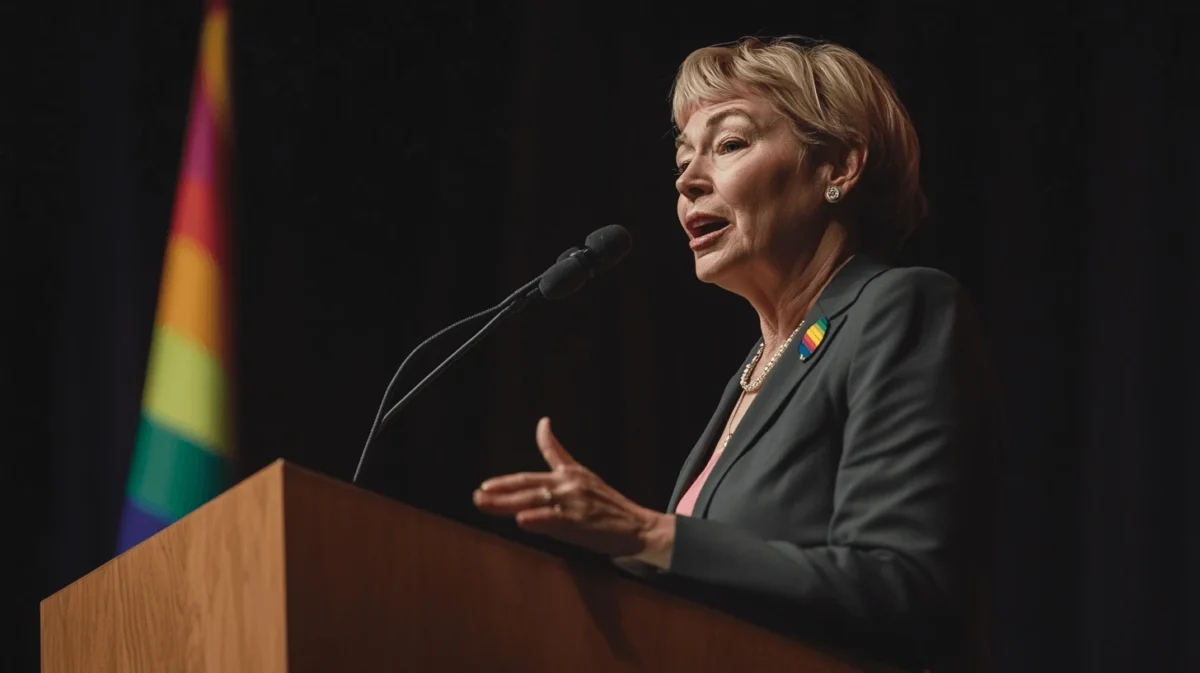Governor Janet Mills stands as a historic figure in U.S. politics. As the first female governor of Maine, she has consistently championed progressive legislation across healthcare, education, and LGBTQ+ rights. Yet, despite a clear public record, a recurring question keeps surfacing: “Is Governor Janet Mills gay?”
This article delves into the truth behind that question, unpacks speculation, and highlights her meaningful actions for the LGBTQ+ community—whether or not she identifies as a part of it.
Tracing the Question: Is Governor Janet Mills Gay?
There is no public confirmation that Governor Janet Mills identifies as gay. Online speculation may stem from her support of LGBTQ+ rights and the fact that she’s been widowed since 2014. Her private life, however, has remained largely out of the spotlight.
For a deeper dive into this topic, explore this related content from GoLGBTQ:
👉 Is Janet Mills a Lesbian?
👉 Is Janet Mills LGBTQ?
These articles provide perspective and community discussion while maintaining respectful boundaries.
Media’s Role and Public Ethics
Media speculation about a public figure’s sexuality, especially without explicit confirmation, can raise ethical concerns. The focus should remain on policies and performance, not assumptions about identity.
Governor Mills has been vocal about her support for LGBTQ+ rights, but that doesn’t equate to personal disclosure. The boundary between allyship and identity must be respected.
In broader context, understanding one’s gender and sexuality is deeply personal. If you’re exploring your own identity, check out our LGBTQ+ Test & Identity Guide for supportive insight.
Janet Mills on LGBTQ+ Rights: A Record of Advocacy
Mills has continually proved herself an ally to the LGBTQ+ community, regardless of speculation.
Notable LGBTQ+ Actions:
- Signed a law banning conversion therapy for minors in 2019
- Declared June as LGBTQ+ Pride Month in Maine
- Publicly defended transgender athletes against federal pushback in 2025
- Supported mental health and anti-discrimination initiatives for queer youth
Her stance has won her praise and criticism alike—but her position remains firm: equality is non-negotiable.
Why the Question Matters: Representation and Privacy
The question of whether a leader is part of the LGBTQ+ community reflects a growing demand for authentic representation. However, that curiosity must be tempered by respect for privacy and voluntary disclosure.
Governor Mills’ pro-LGBTQ+ policies, rather than personal details, are the best measure of her alignment with the community’s values.
If you’re seeking ways to engage and connect with others on shared identity journeys, visit our growing LGBTQ+ Wellness Community.
Public Opinion: How Mainers View Governor Mills
Mills enjoys strong support in Maine, with wide approval for:
- Her COVID-19 response
- Expansion of Medicaid and education access
- Inclusivity and fairness in lawmaking
The public’s appreciation often stems more from her governance style than her private life.
LGBTQ+ Leaders in U.S. Politics
The U.S. has made strides in electing openly LGBTQ+ politicians. Examples include:
- Jared Polis (CO) – First openly gay male governor
- Kate Brown (OR) – First openly bisexual governor
Mills is often compared to these figures. But her leadership is centered on actions and allyship rather than identity, showing that support doesn’t require self-identification.
Conclusion: Respect Over Rumor
Speculating about someone’s sexuality can:
- Invade personal boundaries
- Distract from public service achievements
- Reinforce harmful stereotypes
Governor Janet Mills shows that allyship and leadership don’t require disclosure. Her contributions to LGBTQ+ equity in Maine reflect a commitment to progress and inclusion—not gossip.
If you’re inspired by LGBTQ+ voices making a difference, don’t miss our spotlight on Georgia’s LGBTQ+ Bands—artists using music as a voice for representation.
FAQs
Is Janet Mills married?
She was married to Stanley Kuklinski until his death in 2014.
Does she have children?
She has five stepdaughters through that marriage.
What’s her stance on LGBTQ+ rights?
Strongly supportive. She banned conversion therapy and supports transgender inclusion.
Is she dating anyone now?
There is no public information available on her current romantic life.

